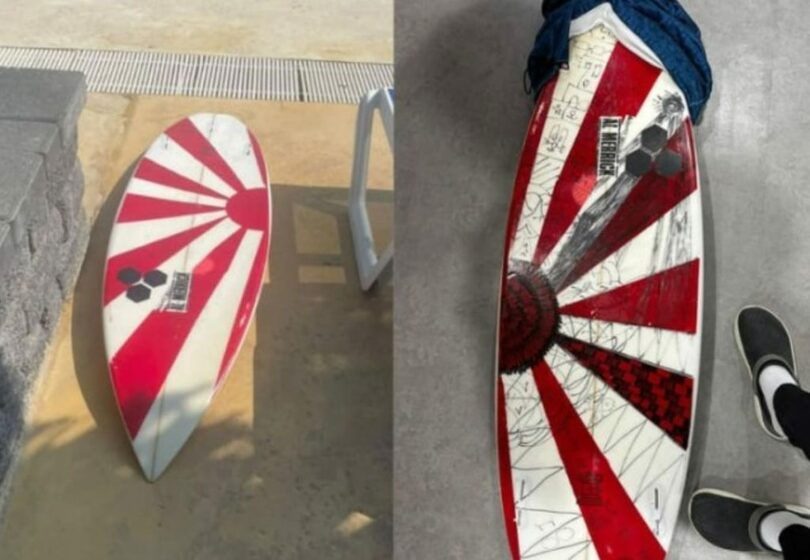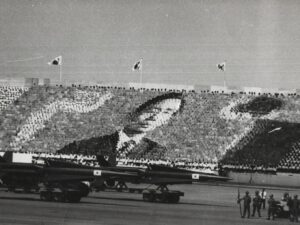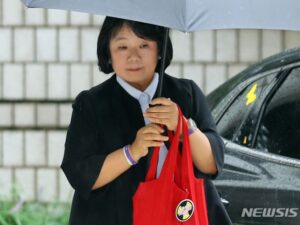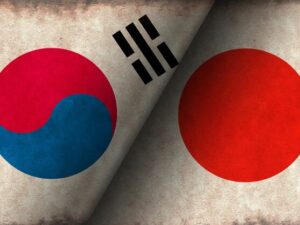
A Japanese boy recently rode a surfboard with the rising sun flag painted on it at an artificial surfing site in South Korea, prompting protests from the South Koreans. Seo Kyung-deok, a professor at Sungshin Women’s University, posted this on her Facebook page and spread the story widely. However, some in Korea have criticized it as an excessive reaction to young tourists visiting Korea. The tourism industry is a prime example.
The problem arose when an 11-year-old Japanese tourist visited Wave Park, an artificial surfing site in Sihungsi, Gyeonggi Province, from June 15 to 18. When he brought a surfboard with the pattern of the rising sun, he was protested by many surfers and warned by the Wave Park. The next day, he tried to use the board with a black magic marker to partially cover the pattern of the rising sun, but this was also not approved, and the Wave Park took measures to keep the board and returned it to him when he left the park on the 18th.
Professor Seo Kyung-Duk spread the news on the Internet, claiming that “the fact that there is no proper education about the Rising Sun in Japan has been proven once again,” “the immediate protest and response will remain as a very good precedent,” and “a very meaningful action.
The protest is “undesirable for the tourism industry.
On the other hand, the tourism industry, which has been making efforts to attract foreign tourists, is voicing concerns. This year, more than 500,000 Korean tourists are traveling to Japan each month, and the number of visitors from Japan to Korea is also increasing. It has been pointed out that the repeated “Rising Sun” issue with Japanese tourists, who currently rank first in terms of the number of tourists visiting Korea, is not helpful at all for tourism exchange between the two countries.
A local tourism official commented, “During the administration of Moon Jae-in, relations between the two countries froze due to the anti-Japanese boycott campaign, and regional air routes between the two countries, which had been steadily increasing, came to a standstill and tourists virtually stopped coming. In this state of affairs, the new Corona outbreak hit the tourism industry hard. The Japanese market is the largest market and the number of tourists visiting Korea is increasing, but I can’t help but worry about the fact that such a problem occurred with children,” he confided.
A university professor added, “The claim that ‘the rising sun flag is a war criminal flag and should not be used’ is just an unreasonable assertion by some, including Professor Seo Kyung-deok. Before that, it had never been a major issue domestically, and it is not an argument that has been recognized by the international community. The U.S. military, which suffered hundreds of thousands of casualties fighting the Japanese in the Pacific War, also used a troop symbol modeled after the Rising Sun flag on its troops stationed in Japan, and there is no animosity toward the Rising Sun flag at all,” he explained.
A top executive of a travel agency also commented, “The rising sun on the Rising Sun flag is often used in Japanese culture as a symbol of affluence, but you cannot tell Koreans to ‘take off those clothes’ or ‘throw away that article’ every time they see such a pattern. The continued controversy over the rising sun is undesirable for the tourism industry,” he said.
(c)MONEYTODAY/KOREA WAVE/AFPBB News








